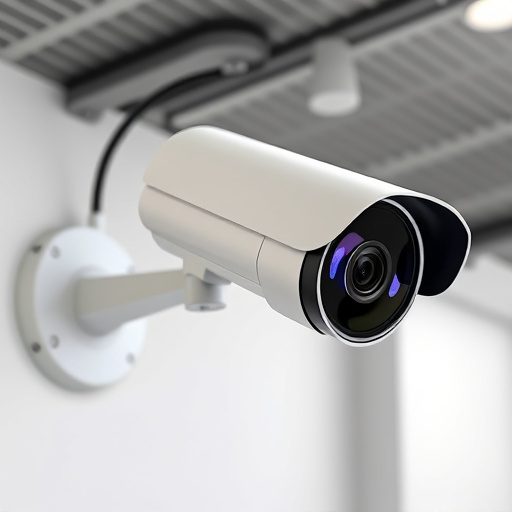Optimizing Pittsburgh Salons: POS Installation Experts & Features
In the competitive salon industry, efficient management through Point Of Sale (POS) Systems Installa…….
In the dynamic retail landscape of Pittsburgh, Pennsylvania, efficient and secure transactions are the backbone of successful businesses. This is where POS (Point of Sale) systems installation steps into the spotlight, serving as a crucial technology to streamline sales processes, enhance customer experiences, and drive business growth. This article delves deep into the world of POS systems, focusing specifically on their installation in Pittsburgh, exploring their impact, benefits, and the considerations involved for businesses seeking to modernize their sales infrastructure. By the end, readers will have a comprehensive understanding of how POS system installation can transform operations and contribute to the success of Pittsburgh-based retailers.
Point of Sale (POS) systems are sophisticated software and hardware solutions designed to facilitate and manage retail transactions. They serve as the central hub for businesses to process sales, track inventory, analyze customer behavior, and generate essential reports. A typical POS system includes several key components:
POS systems have evolved significantly over the years, transforming from simple cash registers to robust digital platforms. The introduction of computerization in the 1980s marked a significant shift, allowing for faster transactions and better inventory management. With the advent of internet connectivity in the 1990s, POS systems became gateways to online sales and customer databases. Today, these systems are integral to the digital transformation of retail, enabling businesses to compete globally and cater to modern consumers’ expectations.
In Pittsburgh, as in many cities, POS system installation has become a strategic move for local retailers to stay competitive and efficient. With a thriving retail sector, ranging from boutique stores to large shopping malls, implementing a robust POS solution is essential to manage operations, improve customer interactions, and gain valuable insights into sales patterns.
The impact of POS systems installation extends far beyond Pittsburgh’s borders, influencing global retail trends and practices. According to a report by Grand View Research, the global POS market size was valued at USD 81.5 billion in 2020 and is expected to grow at a compound annual growth rate (CAGR) of 9.7% from 2021 to 2028. This rapid growth can be attributed to the increasing adoption of digital payment methods, rising e-commerce sales, and the need for efficient inventory management worldwide.
Different regions have unique POS system implementation trends:
The POS systems market is highly competitive, with numerous global players and emerging startups offering specialized solutions. This competition drives innovation, improves software functionality, and provides businesses with a wide range of choices. According to Statista, the US POS terminal market size was valued at USD 3.5 billion in 2021, expected to grow significantly in the coming years.
POS system installation involves substantial upfront costs, including hardware, software licensing, and integration fees. However, the long-term benefits of increased efficiency, improved customer satisfaction, and enhanced data insights make it a valuable investment for Pittsburgh businesses. Many retailers also consider the potential return on investment (ROI) from expanded online sales channels integrated with POS systems.
Pittsburgh’s diverse economy, with sectors like technology, healthcare, and manufacturing, presents unique opportunities for POS system integration:
One of the most significant technological trends is cloud-based POS systems, which offer scalable, flexible, and cost-effective solutions. These systems allow businesses to access their data and manage operations remotely, enabling efficient remote monitoring and support. Cloud integration also facilitates seamless updates and real-time data synchronization across multiple locations.
Mobile POS (mPOS) devices are transforming retail interactions by enabling sales and payments from anywhere within a store or even remotely. mPOS systems can be accessed via smartphones or tablets, providing flexibility, improved customer engagement, and the potential for mobile loyalty programs.
Artificial Intelligence (AI) is revolutionizing POS systems by enhancing predictive analytics, personalizing customer interactions, and automating various processes. AI algorithms can forecast sales trends, suggest inventory purchases, and provide insights into customer preferences, empowering businesses to make data-driven decisions.
POS system installation in Pittsburgh, PA, is subject to various legal and regulatory requirements, ensuring consumer protection and data security. Some key considerations include:
Several industry organizations and initiatives focus on setting standards for POS systems:
Despite their numerous benefits, POS system installations in Pittsburgh can face several challenges:
To address these challenges:
Green House Flowers, a popular local florist, faced challenges as their business expanded beyond their brick-and-mortar store. They implemented a cloud-based POS system to manage multiple sales channels, including their online shop and pop-up events. The new system enabled them to:
The Iron Horse Tavern, a bustling downtown restaurant, sought to modernize its POS system to match the vibrant atmosphere of Pittsburgh’s dining scene. They adopted a mobile POS solution, allowing servers to take orders at tables and process payments swiftly. This transformation resulted in:
The future of POS systems installation in Pittsburgh holds immense potential across several sectors:
POS systems installation is not just a technological upgrade; it’s a strategic imperative for Pittsburgh businesses aiming to compete in today’s digital marketplace. By understanding the core components, global trends, economic considerations, and emerging technologies, local retailers can make informed decisions to enhance their operations. Overcoming challenges through strategic planning, learning from successful case studies, and staying abreast of future prospects will empower Pittsburgh businesses to thrive in an ever-evolving retail landscape.
Q: How do I choose the right POS system for my small business in Pittsburgh?
A: Begin by assessing your business needs, budget, and growth plans. Research various POS providers, compare features and pricing, and consider seeking recommendations from industry peers or local business groups.
Q: Are there any tax implications when installing a new POS system?
A: Yes, certain expenses related to POS system installation and hardware may be deductible under specific circumstances. Consult with an accountant or tax advisor to understand the tax benefits and requirements for your business.
Q: How can I ensure data security with a cloud-based POS system?
A: Cloud providers typically implement robust security measures, but you should also follow best practices like using strong passwords, enabling two-factor authentication, regularly updating software, and encrypting sensitive data stored locally.
Q: Can POS systems help with inventory management for businesses in the food service industry?
A: Absolutely! Advanced POS systems offer real-time inventory tracking, automated purchase orders, and detailed sales analytics, helping restaurants and cafes manage ingredients efficiently and reduce food waste.
Q: What are the benefits of integrating online sales with a POS system?
A: Integrating online and offline sales channels allows businesses to capture a wider customer base, offer convenient payment options, analyze sales data across all platforms, and provide a seamless shopping experience, ultimately driving revenue growth.

In the competitive salon industry, efficient management through Point Of Sale (POS) Systems Installa…….

The article emphasizes the need for a dynamic approach to change, suggesting that traditional method…….